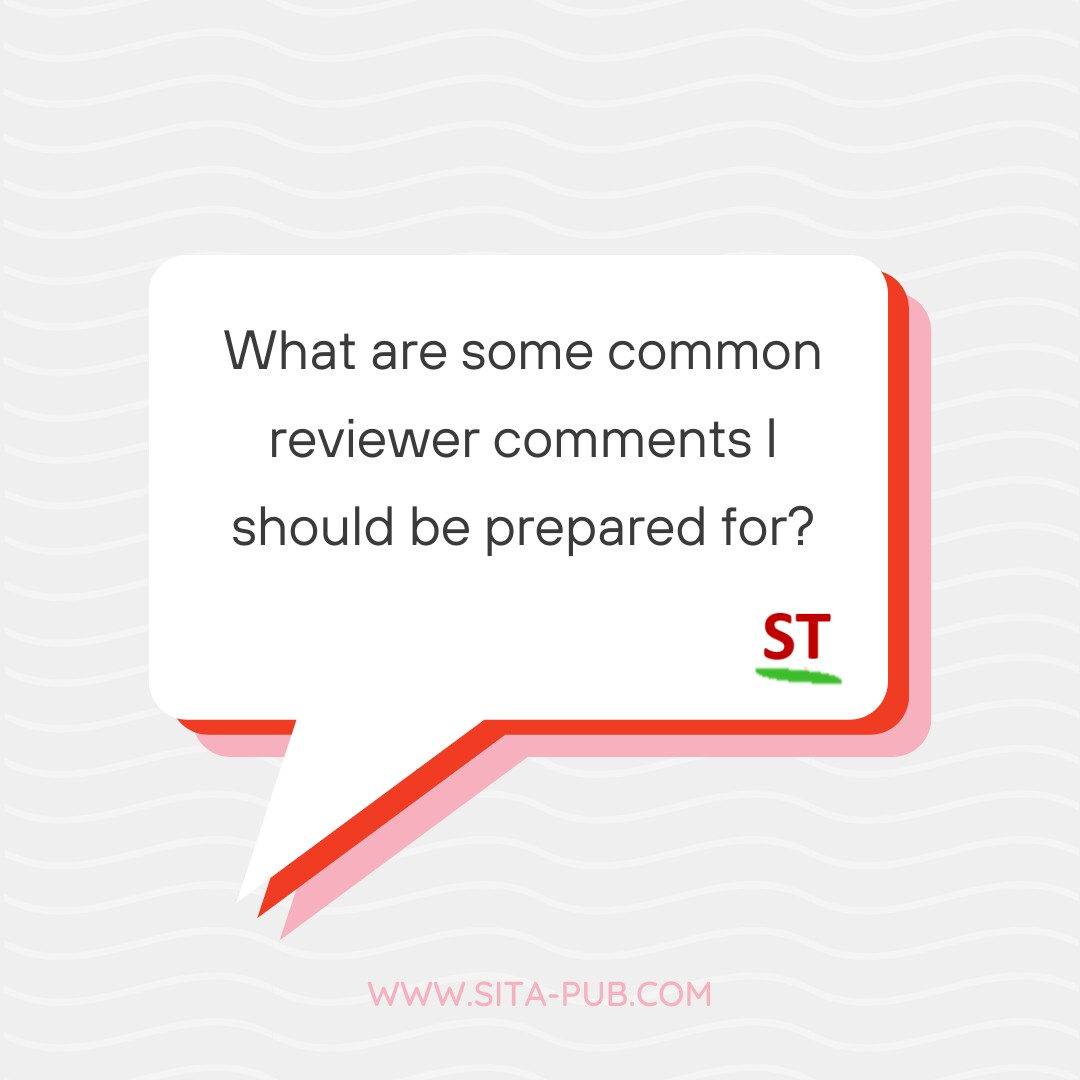What are some common reviewer comments I should be prepared for?


When you submit a research paper, it usually goes through a process called peer review. In this process, other experts in your field read your paper and give feedback. This feedback can help improve your work and increase your chances of getting published. Understanding how to respond to reviewer comments is very important. This guide will show you common comments you might receive and how to respond effectively.

Comment: "The research question needs to be more clearly defined."
Response: Thank the reviewer for their feedback. You should clearly state your research question in the introduction. For example, you might say, “This study aims to answer the question: [your research question].” This makes it easier for readers to understand what you are investigating.
Comment: "The literature review is insufficient; consider including recent studies."
Response: Acknowledge the reviewer’s point. Add more recent studies to your literature review. Explain how these studies relate to your work. For instance, you could write, “We have included recent studies by [author] (2022) and [author] (2023) to strengthen our literature review.”
Comment: "The methodology section lacks detail; please provide more explanation."
Response: Thank the reviewer for pointing this out. Provide more details about your methods, such as how you collected data and analyzed it. You could say, “We have expanded the methodology section to include more details about our sampling process and data analysis methods.”
Comment: "The results are not adequately interpreted. Please discuss their implications."
Response: Acknowledge the need for deeper interpretation. Add a section discussing the implications of your findings. You might say, “We have added a discussion of the implications of our results in Section X, highlighting their importance in the field.”
Comment: "The relevance of your findings to the field needs to be emphasized."
Response: Thank the reviewer for their insight. Emphasize the relevance in your conclusion and discussion sections. You could write, “We have revised the conclusion to better highlight the relevance of our findings to current research trends.”
Comment: "The quality of the data presented is questionable; additional validation is needed."
Response: If applicable, provide additional validation or clarification. Discuss how you ensured data quality. You might say, “We have included additional information on our data validation process in the methodology section.”
Abstract
Comment: "The abstract should be more concise and reflect the main findings."
Response: Thank the reviewer and revise the abstract to make it clearer and more focused. You can say, “We have rewritten the abstract to more clearly reflect our main findings and keep it concise.”
Organization
Comment: "The manuscript lacks a logical flow; consider reorganizing sections."
Response: Acknowledge the comment and reorganize your manuscript if necessary. You might write, “We have reorganized the sections to improve the flow, moving the discussion of X to follow the results.”
Figures and Tables
Comment: "Figures/tables should be better integrated into the text."
Response: Thank the reviewer. Ensure that each figure and table is referenced in the text and explain how it contributes to your findings. You could say, “We have made sure to reference all figures and tables in the text and added explanations for their relevance.”
References
Comment: "Ensure all references are formatted according to journal guidelines."
Response: Acknowledge the need for formatting. Carefully check your references and ensure they follow the journal’s guidelines. You might write, “We have revised the reference list to comply with the journal’s formatting requirements.”
Conclusion
Comment: "The conclusion does not adequately summarize the main findings."
Response: Thank the reviewer and revise the conclusion to summarize your key findings clearly. You can say, “We have rewritten the conclusion to emphasize our main findings and their significance.”
Section Headings
Comment: "Consider using more descriptive section headings for clarity."
Response: Acknowledge the suggestion and revise the headings to make them more descriptive. You might write, “We have updated the section headings to better reflect the content and enhance clarity.”
Be Grateful: Always thank the reviewers for their comments, even if you disagree. Show appreciation for their time and effort.
Be Professional: Maintain a respectful tone in your responses. Avoid emotional language and focus on the content.
Be Clear: Clearly state how you addressed each comment. Use a structured format, such as listing each comment followed by your response.
Be Detailed: Provide enough detail in your responses so reviewers can understand your changes. Reference specific sections in your manuscript.
Be Honest: If you disagree with a comment, explain your reasoning respectfully. You might say, “While we appreciate this suggestion, we believe that our original approach is valid because…”
Here’s a simple format you can use to respond to reviewer comments:
Reviewer Comment 1: "The research question needs to be more clearly defined."
Response: Thank you for your valuable feedback. We have clarified our research question in the introduction by stating, “This study aims to answer the question: [your research question].”
Reviewer Comment 2: "The methodology section lacks detail; please provide more explanation."
Response: We appreciate your comment. We have expanded the methodology section to include more details on our sampling process and data analysis techniques.

When preparing your manuscript, it is essential to ensure that your writing is clear and professional. Here are reasons why native English editing and proper formatting are crucial:
Improves Clarity: Native English editing helps make your writing clearer. This is especially important if English is not your first language. Clear writing helps reviewers understand your ideas without confusion.
Enhances Readability: Good editing improves the flow and structure of your manuscript. This makes it easier for reviewers to follow your arguments and findings.
Corrects Errors: Editing catches grammatical errors, awkward phrasing, and typos. Even small mistakes can distract reviewers and affect their perception of your work.
Meets Formatting Requirements: Different journals have specific formatting guidelines. Proper formatting ensures your manuscript meets these requirements, which can affect the likelihood of acceptance.
Increases Professionalism: A well-edited and formatted manuscript reflects professionalism and attention to detail. This can positively influence reviewers’ impressions of your work.
Responding to reviewer comments is a critical part of the publication process. By understanding common comments and how to respond effectively, you can improve your chances of getting your paper published. Always remember to be grateful, professional, and clear in your responses. Additionally, investing in native English editing and ensuring proper formatting will help enhance the quality of your manuscript. With these strategies, you’ll be well on your way to successful publication.
Ready to strengthen your research and prepare for reviewer feedback? At SITA, we offer expert editing and formatting services to help you enhance your manuscript. Our native English editors will ensure your work is clear, coherent, and meets all journal guidelines. Don’t leave your success to chance—partner with SITA to boost the quality of your paper and improve your chances of publication.

If you have any questions, inquiries, or would like to learn more about our services, please don't hesitate to reach out to us. Our dedicated team is ready to assist you.